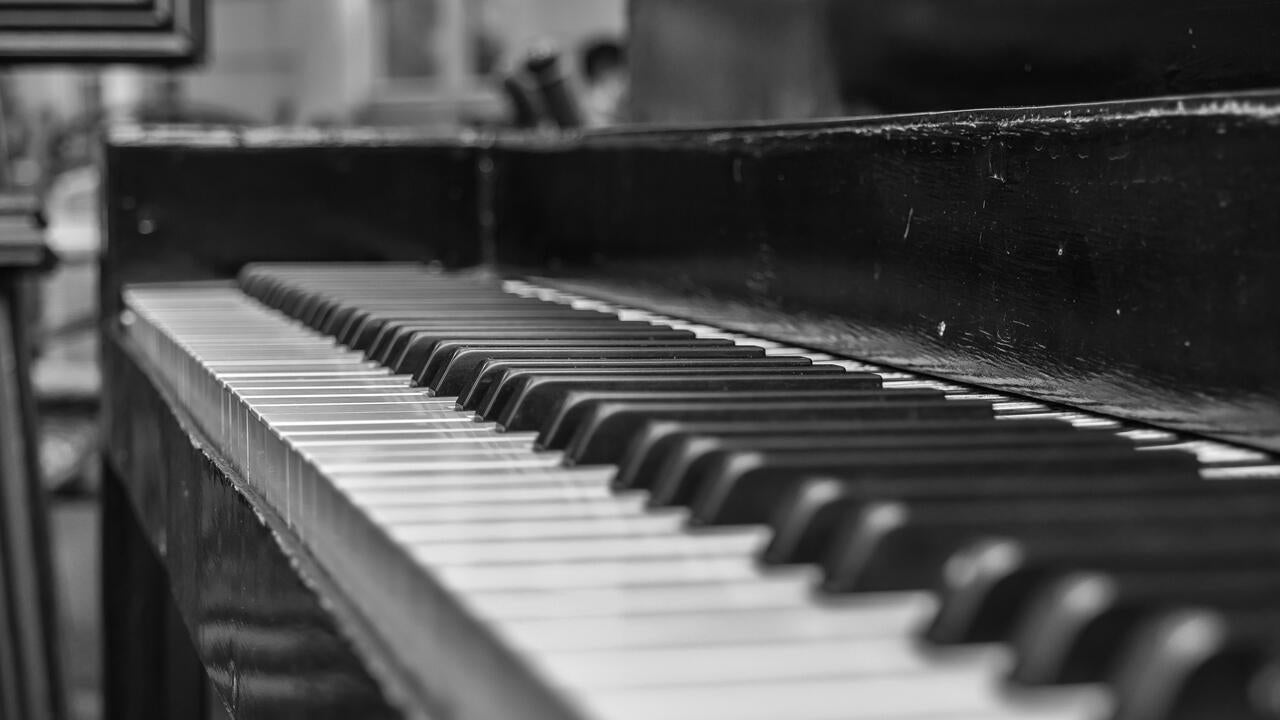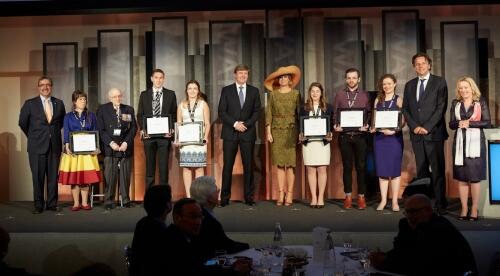
Beyond bling: harnessing the real power of diamonds
Madelaine Liddy (BASc '14) was the first student at UWaterloo with a double major in Engineering and Music

Madelaine Liddy (BASc '14) was the first student at UWaterloo with a double major in Engineering and Music
By Cynthia Kinnunen Faculty of EngineeringMadelaine Liddy (BASc '14) has always had an interest in a wide range of subjects. Once she was in the engineering program at Waterloo, she took great interest in electronics and quantum mechanics, steering her into nanotechnology. Most students would be satisfied with the workload thrust upon them in engineering but Madelaine quickly realized she was missing something important: music. "I always found playing piano to be a big stress reliever," she explains. "So I decided to take some music courses to create space for music during my degree and before long, I realized that I should just pursue the double major."

A first at Waterloo with a double major in engineering and music, Madelaine not only found the musical aspects provided a much-needed stress release but found great benefit to allowing her mind to flow back and forth between the two worlds of her studies. "I have always been fascinated by the patterns in music that are quite mathematical in nature. There is something wonderful about that intersection of areas, having a creative outlet that also draws parallels between aspects of engineering and opening up my mind to think about things in different ways. They are very complementary subjects. The hardest part was simply coordinating the course schedules!"
Madelaine is now working on her master's degree under Dr. David Cory, Canadian Excellence Research Chair in Quantum Information. She has been diving into research on Nitrogen-Vacancy (NV) chemical sensors, designing fabrication procedures for surface treatment of NV doped diamonds for biological and chemical surface species detection. Its been great to be part of Professor Cory's group as he really gives students a chance to take ownership of their projects. But the research is of course really exciting, seeing how highly sensitive these defects can be, responding to extremely minute changes on the surface, which could help identify any number of things from water contamination to cancer cells.”
Madelaine’s research will take her to the Netherlands for a term to continue her research with Professor Ronald Hanson of Delft Technical University. “I share an enthusiasm with Dr. Hanson for projects that are cross-disciplinary and I look forward to that collaboration." The opportunity is a result of Madelaine receiving an historic scholarship awarded in honour of the 70th anniversary of the liberation of the Netherlands in WWII.

Read more
Meet five exceptional Waterloo graduate students crossing the convocation stage as Class of 2025 valedictorians

Read more
Discover how Waterloo alumni are driving Canada’s economy with five tech companies making a local and global impact

Read more
The medal honours outstanding individuals across Canada who have made significant contributions to their communities
The University of Waterloo acknowledges that much of our work takes place on the traditional territory of the Neutral, Anishinaabeg, and Haudenosaunee peoples. Our main campus is situated on the Haldimand Tract, the land granted to the Six Nations that includes six miles on each side of the Grand River. Our active work toward reconciliation takes place across our campuses through research, learning, teaching, and community building, and is co-ordinated within the Office of Indigenous Relations.